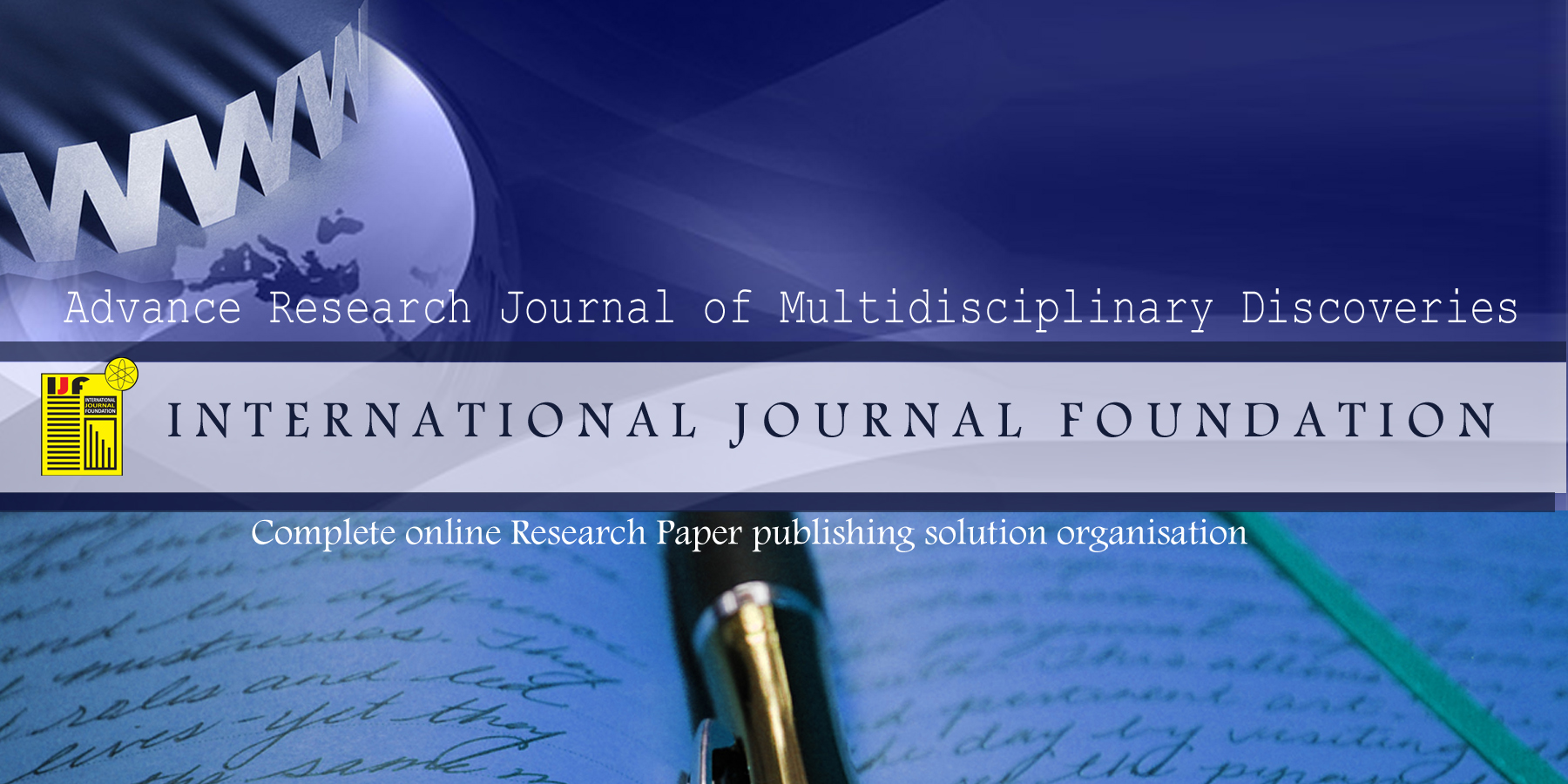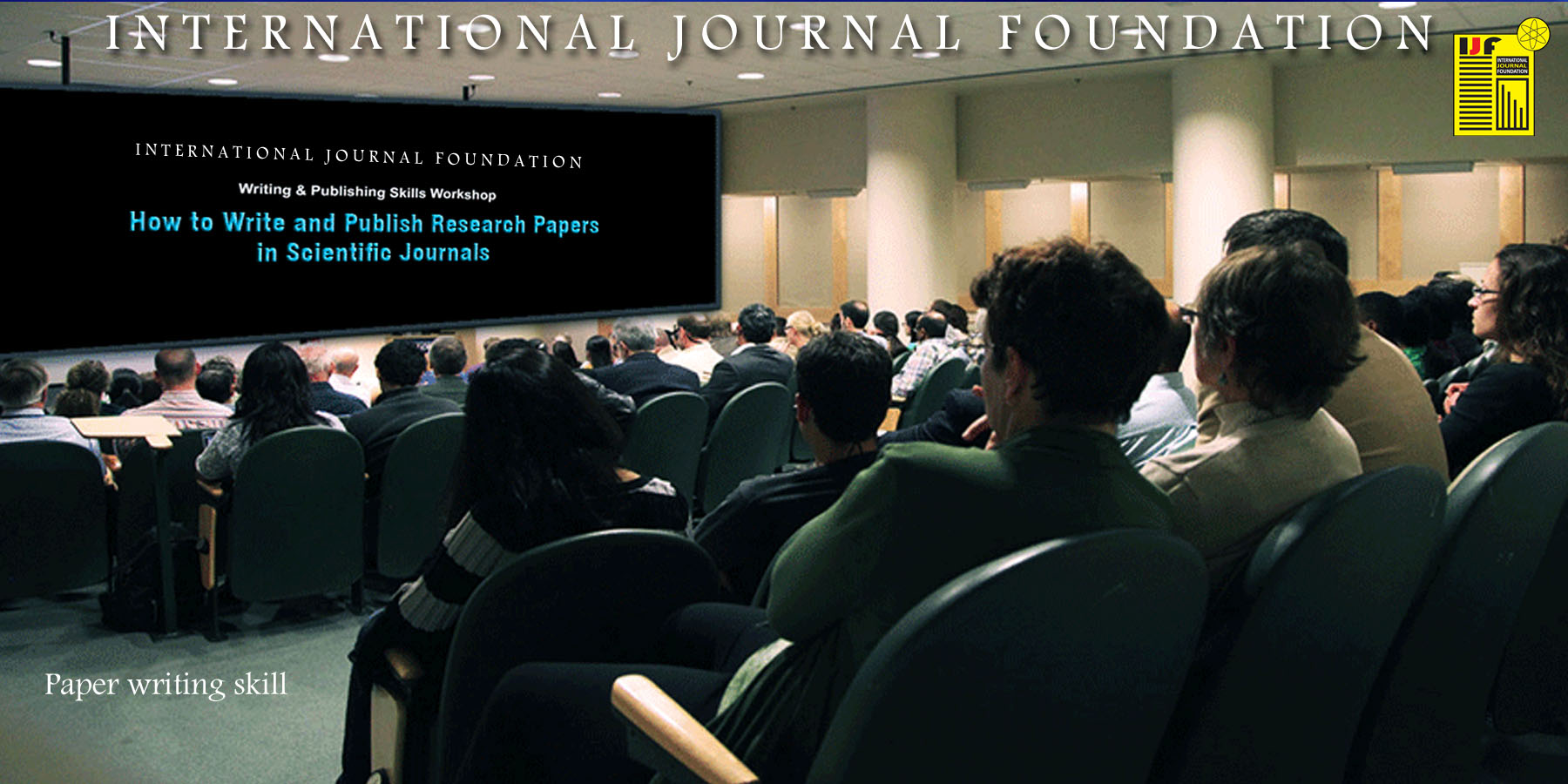2016
DECEMBER 2016/ Vol.8.0/ Issue-I
CATEGORY : Research Topic on Business Management
| SL.No. | Detailed information of the published article |
| 1 | TITLE NAME : A STUDY ON INDUSTRIAL RELATIONS -WITH REFERENCE TO TOBACCO INDUSTRY IN GUNTUR DISTRICT Author’s Name : Dr. S. Apparao Article Type : ORIGINAL RESEARCH ARTICLE Country from : INDIA DOP- 05-01-2017/ Chapter-I/Page – 01-09 [ DECEMBER ISSUE ] Article Code : BM-V8-I1-C1-DEC2016 [ ORIGINAL RESEARCH ARTICLE ] Status : Officially published / Download: E-Certificate , Full Article (pdf) —————————————————————————————————————————— Abstract : The major problem of today is how to introduce conditions for good industrial relations in an organization. In fact, the squeeze on perks placed on managers has led them to think whether they should also be part of a strike movement and whether they need a union. click here This has led to a climate of demoralization in the private sector”. The typical reaction of a newly unionized manager is that whilst he supports the management position as ever, he feels, he needs the protection of a union. Thus, an increasing number of managers are joining unions. Most of the studies show that there is a relation between Industrial relations and employees’ performance. So there is a need for the organization to provide conductive relations’ climate to the employees. Organizations find it difficult to understand what type of climate that the employees preferred because employees’ perceptions differ from time to time and from situation to situation. So the researcher has studied the perception of employees on industrial relations in selected tobacco companies i.e. M.L Group, Ethnic tobacco, Bommidala tobacco and ITC, in Guntur district.
 |
CATEGORY : Research Topic on Business Management
| SL.No. | Detailed information of the published article |
| 2 | TITLE NAME: A STUDY ON HRD CLIMATE IN PRIVATE SECTOR BANKS IN GUNTUR DISTRICT Author’s Name : Dr. S. Apparao Article Type : ORIGINAL RESEARCH ARTICLE Country from : INDIA DOP- 05-01-2017/ Chapter-II/Page – 10-14 [ DECEMBER ISSUE ] Article Code : BM-V8-I1-C2-DEC2016 Status : Officially Published / Download: E-Certificate , Full Article (pdf) —————————————————————————————————————————— Abstract : A study on Human resource development climate in private sector banks ultimately concludes with certain recommendations and measures that can be taken into consideration by the banks, for developing and implementing certain strategies to strengthen the organizational effectiveness through human resources development. click here It is well established today that it is not just financial and technological capital that provide banks with the competitive edge, but people, or human capital. Without attracting and retaining the right people, in the right jobs, with the right skills and training, private sector banks cannot succeed., then the researcher suggested these interventions i.e. “class “y” people, “interventions of organizational development”, “Effective communication”, “open door policy” and “Team work” and proactive and healthy working environment can be created which enhances the organizational development, moreover, the efficiency of production process and various areas of management depends to a greater extent on the level of human resources development, and this study done with structured questionnaire to collect the primary data. Data was analyzed by with SPSS, and, was applied the Regression analysis with ANOVA and Pearson Correlation.
 |
CATEGORY : Research Topic on Medical Science
| SL.No. | Detailed information of the published article |
| 3 | TITLE NAME : DEVELOPMENT INDICATORS TB PULMONARY DISEASE HEALING WETLAND IN THE CITY BANJARMASIN (Study of Swallowing Drug Assistance Program Supervisor at Family Core DOTS) Author’s Name : Syamsul Arifin1, Ruslan Muhyi2, Ratna Setyaningrum3, Fauzie Rahman4, Lenie Marlinae5 Article Type : ORIGINAL RESEARCH ARTICLE Country from : INDONESIA DOP- 05-01-2017/ Chapter-III/Page – 15-23 [ DECEMBER ISSUE ] Article Code : MDS-V8-I1-C3-DEC2016 Status : Officially Published Download: E-Certificate , Full Article (pdf) —————————————————————————————————————————— Abstract : Pulmonary tuberculosis is still a public health problem in the world, one of them in Indonesia. Based on data from the Health Research in 2013 it is known that as many as 14 098 patients with pulmonary tuberculosis were examined by medical personnel and the use of Oat Anti-Tuberculosis (OAT) still amounted to 39.6%. This research aims to develop indicators cure pulmonary tuberculosis in Banjarmasin to analyze the risk factors for pulmonary tuberculosis cure such as:medication adherence, TB patient characteristics, and treatment supporter of the nuclear family. click here This research is observational analytic quantitative approach. The population of this study were 47 patients with pulmonary TB, the samples were 30 respondents. The research instrument used was a questionnaire. The research variables include the performance of PMO, medication adherence and characteristics (age, gender, education and income) pendetia pulmonary TB. Based on Chi Square test, found a link between the performance of PMO with adherence (p = 0.013), and there is no relationship between the characteristics of the respondent compliance, age (p = 1.000), gender (p = 1.000), education (p = 1.000) , income (p = 1.000).
|
CATEGORY : Research Topic on Medical Science
| SL.No. | Detailed information of the published article |
| 4 | TITLE NAME : STUDY OF CONDUCT SOCIETY CULTURAL EVENTS AND RISK FACTORS IN THE CITY BANJARBARU SCABIES AND CONTROL EFFORTS Author’s Name : Agung Biworo1, Husaini2, Fauzie Rahman3, Lenie Marlinae4, Dian Rosadi5, Fahrini Yulidasari6, and Hadianor7 Article Type : ORIGINAL RESEARCH ARTICLE Country from : INDONESIA DOP- 05-01-2017/ Chapter-IV/Page – 24-32 [ DECEMBER ISSUE ] Article Code : MDS-V8-I1-C4-DEC2016 Status : Officially published / Download: E-Certificate, Full Article (pdf) —————————————————————————————————————————— Abstract : Scabies is a skin disease that is often common in Indonesia and is a public health problem. The most dominant factor in the incidence of scabies is poverty and poor individual hygiene. The purpose of this study to the analyze the relationship between gender, level of education, knowledge, attitudes, and actions with the incidence of scabies. click here This research method is analytic observational case control approach. The study population was region of the public health center Cemapak with the sampling technique random sampling with sample of 60 respondents using chi-square test or fisher-excat with a confidence level of 95%. The results of this study show that there is a correlation between knowledge (0.0001), and acts with scabies events (p= 0.001). While gender (p= 0.065), education level (p= 0.096), and attitude (p= 0.492) was not associated with the incidence of scabies. The conclusion from this study that the knowledge and actions of good hygiene practices less will increase the risk of incidence of scabies. Therefore, it is necessary to have the communication, information and education on the prevention of scabies in society that are vulnerable and support by religious leaders and community leaders to The effort moves.
 |
CATEGORY : Research Topic on Medical Science
| SL.No. | Detailed information of the published article |
| 5 | TITLE NAME : HOW DO SAUDI MEDICAL COLLEGES TEACH MEDICAL ETHICS? CROSS-SECTIONAL QUESTIONNAIRE STUDY Author’s Name : Abdulaziz F AlKabba1 Ghaiath MA Hussein2 Tariq Abdullah M Aldawqi3, Hamood Sulaiman A Alturaigi4 Ahmed Emad M Alghamdi5 Abdullah Abdulmohsen A Bin Matar 6 Article Type : ORIGINAL RESEARCH ARTICLE Country from : SAUDI ARABIA (KSA) DOP- 05-01-2017/ Chapter-V/Page – 33-39 [ DECEMBER ISSUE ] Article Code : MDS-V8-I1-C5-DEC2016 Status : Officially published / Download: E-Certificate, Full Article (pdf) —————————————————————————————————————————— Abstract : Background: Despite the growing literature on teaching of medical ethics and professionalism globally. However, few studies have been reported from the Kingdom of Saudi Arabia (KSA) to assess the teaching of medical ethics to undergraduate medical students. Aim: To study how the undergraduate medical schools in KSA teach medical ethics and professionalism (MEP) for their undergraduate students. click here Methods: An online cross-sectional questionnaire study was done and involved both public and private undergraduate medical schools in KSA. Results: Out of 18 targeted medical schools, 11 responded (61.1%). Ten schools (90.9%) had dedicated curriculum for ethics and professionalism. In most of them, the MEP course the course was 10-14 weeks (7; 63.6%), taught in third and 4th years (4; 36.6%, each), and in more than 15 contact hours (7; 63.6%). The most commonly used references were English textbooks (11; 100%), international (non-Saudi) ethical guidelines (7; 36.6%), and Saudi (ethics) Guidelines (4; 36.4%). Conclusion: There seems to be a growing interest and commitment to teach ethics in the Saudi medical schools using various teaching methods, not only lectures. There are, however, few gaps that should be addressed, namely: 1) lack of national medical ethics reference, 2) lack of clarity on how to merge the Islamic teaching along the predominantly western secular approaches to bioethics, and 3) lack of consistency in the teaching and students’ evaluation methods.
 |
CATEGORY : Research Topic on Social Science
| SL.No. | Detailed information of the published article |
| 6 | TITLE NAME : POLLUTING POLITICS: A BIRD EYE VIEW OF CRIMINALISATION OF POLITICS IN INDIA Author’s Name : Mr. Suvendu Kumar Baral Article Type : ORIGINAL RESEARCH ARTICLE Country from : INDIA DOP- 05-01-2017/ Chapter-VI/Page – 40-43 [ DECEMBER ISSUE ] Article Code : SS-V8-I1-C6-DEC2016 Status : Officially published / Download: E-Certificate, Full Article (pdf) —————————————————————————————————————————— Introduction : Criminalization of politics is a vital topic to be discussed in any democratic platform. This issue is on focus every now and then. The Government and the governance system credibility is questioned. Sometimes the government loose its legitimacy and authenticity due to the involvement of persons with criminal backgrounds. click here …. To view full introduction please see pdf file

|
CATEGORY : Research Topic on Entomology
| SL.No. | Detailed information of the published article |
| 7 | TITLE NAME : TOXICITY OF GOLDEN NANOPARTICLES SYNTHESIZED BY INSECTS PATHOGEN ENTOMOPHTHRA CULICIS VERSUS MOSQUITO ANOPHELES STEPHENSI (Diptera : Culicidae) Author’s Name : Hussein R.Mahmood & Saba A.Ziadi Article Type : ORIGINAL RESEARCH ARTICLE Country from : IRAQ DOP- 05-01-2017/ Chapter-VII/Page – 44-48 [ DECEMBER ISSUE ] Article Code : SS-V8-I1-C7-DEC2016 Status : Officially published / Download: E-Certificate, Full Article (pdf) —————————————————————————————————————————— Abstract : Bio-nanoparticles formation was noticed by the alteration in color of the solution to dark pink. This was followed by characterizing the nanoparticles using UV-Vis spectrophotometer and TEM. Gold nanoparticles were found to be Orbicular and their size was in the range of 20 – 30 nm. click here As well gold nanoparticles were assayed versus Anopheles stephensi larvae and pupae. A. Stephensi was exposed to varying concentrations of AgNPs synthesized from E.culicis under investigation (2,4,6,8 and 10 ppm) for 24 hours, which offered high toxicity with the highest mortality values of %100 against Ist instar, while both 2nd and 3rd were less susceptive to synthesized AuNPs and The lowest mortalities were against 4th instar larvae in all tested concentrations .The toxicity of AuNPs against pupae reached the highest level at 10 ppm after 24hours The results that got in this research present biosynthesized nanoparticles as novel biolarvicidal and pupicidal agent and can be used in control programs successfully.
 |
CATEGORY : Research Topic on Education
| SL.No. | Detailed information of the published article |
| 8 | TITLE NAME : IMPACT OF ETHICAL LEARNING ENVIRONMENT IN FOSTERING ACADEMIC INTEGRITY Author’s Name : Lakshmi C Radhakrishnan,* Edmund Christopher & Panchali Das Article Type : ORIGINAL RESEARCH ARTICLE Country from : UNITED ARAB EMIRATES (UAE) DOP- 10-01-2017/ Chapter-VIII/Page – 49-59 [ DECEMBER ISSUE ] Article Code : EDU-V8-I1-C8-DEC2016 Status : Officially Published / Download: E-Certificate, Full Article (pdf) —————————————————————————————————————————— Introduction : Educational institutions are always concerned with academic integrity and ethical standards to be maintained in campus. Institutions take special efforts to adhere to ethics and integrity policies despite which the issue of academic dishonesty especially electronic cheats is a rising concern in all higher education providers in Middle East. click here The objectives stated below would serve as a guide to the readers to follow the chapter in a harmonized pattern. On review of this Chapter, the reader is expected to be able to; a) Identify the elements of academic dishonesty. b) Classify the components of dishonesty found in campuses.c) Demonstrate an understanding of different approaches to manage ethics and integrity in academics. d) Analyze why institutional efforts to curb dishonesty fails. e) Design a model of Ethical Learning Environment in alignment to the policies prevalent on dishonesty framed by the institution. f) Recommend steps institutions need to follow for successful implementation and sustain Ethical Learning Environments .

|
N.B.
(i) To Publish your next paper in upcoming issue send your article at article.ijf@gmail.com
( ii ) E- certificate from publisher are free of cost. To get a Original Hard copy of “Publication Certificate“ from International Journal Foundation (Publisher) please contact at journal.ijf@gmail.com
![]()
![]()
![]()
![]()
![]()
![]()
















